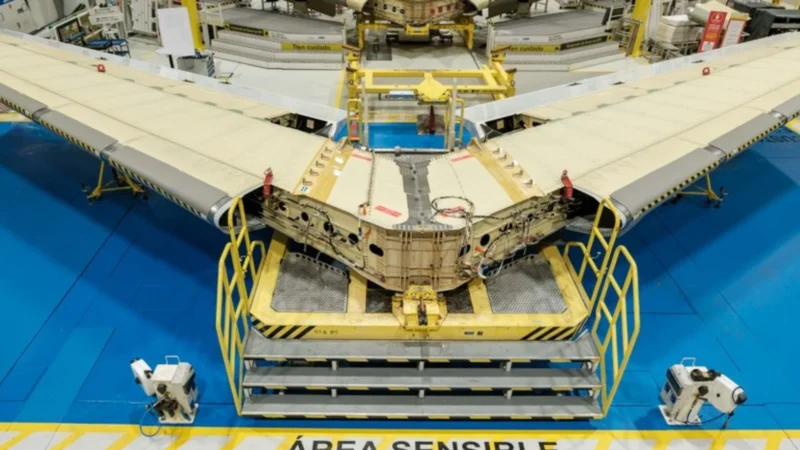Airbus marks progress on A350 freighter with stabiliser completion
Airbus has completed production of the first horizontal stabiliser (HTP) for its new-generation A350 freighter (A350F), marking a key milestone in the aircraft’s development timeline.
Manufactured across Airbus facilities in Spain, the HTP involved component production at the Cádiz site and final assembly and outfitting at the Getafe plant near Madrid.
The component will be shipped in the coming weeks to the Airbus Final Assembly Line (FAL) in Toulouse, where it will be integrated with the fuselage of the first test aircraft.
The A350F programme includes two flight test aircraft, which are scheduled to enter testing in 2026 and 2027.
One of the notable features of the freighter variant is that its HTP is being manufactured on the same production line as the passenger A350. Airbus says this approach delivers both operational and industrial efficiencies across the twinjet programme.
“The A350F will offer a clean-sheet, specifically designed solution for air freight transport, bringing more efficiency and versatility to the cargo market,” said Ricardo Rojas, president of Airbus’ commercial aircraft business in Spain. “With more than 1,400 orders for the A350, including 66 A350Fs, Spain plays a key role in this programme that presents the future in air cargo transportation.”
Spain’s contribution to the A350 and A350F goes beyond the HTP. The country is responsible for producing the aircraft’s rear fuselage (section 19), lower wing covers and, for the A350F, the main deck cargo door – which Airbus claims is the largest in the industry. The composite-made door features a 4.3-metre opening to facilitate safer and quicker loading and unloading of freight.
Billed as the world’s most advanced cargo aircraft, the A350F has been engineered to meet the evolving needs of air freight operators. It promises a 20% improvement in fuel efficiency and CO2 emissions over older in-service cargo aircraft. With a payload of up to 111 tonnes and a range of 8,700km, the A350F is expected to support long-haul operations with greater sustainability and operational flexibility.
READ MORE NEWS: MTU’s Wagner to replace Scherer as Airbus commercial chief

